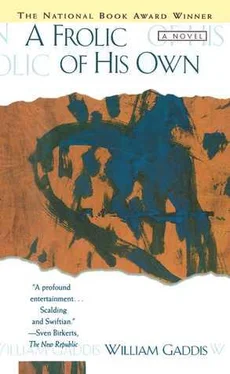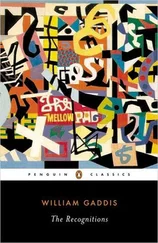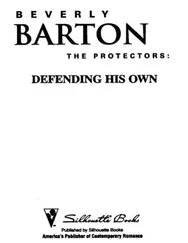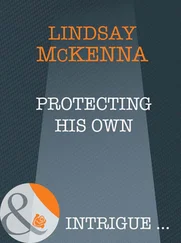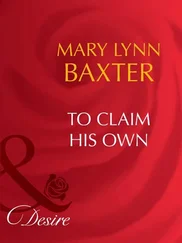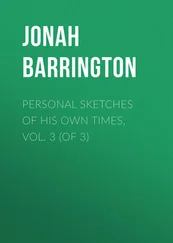MR.MADHAR: Read it back.
THE WITNESS: I thought you wanted it read for your own benefit. (Question read.) Q Do you agree or disagree with that?
MR.BASIE: I'm sorry, but… MR.MADHAR PAI: Do you have an objection?
MR.BASIE: Yes. MR.MADHAR PAI: What is your objection?
MR.BASIE: It was a statement. There are a number of statements.
MR.MADHAR PAI: Do you have an objection?
MR.BASIE: Yes. MR.MADHAR PAI: What is the objection?
MR.BASIE: The objection is that you have made a number of statements…
MR.MADHAR PAI: Is it as to form?
MR.BASIE: Yes. MR.MADHAR PAI: Then let the witness answer.
THE WITNESS: I repeat. There are two things here. One is the idea and the other one is the execution of the idea.
Q Yes.
A Before I wrote the play, when I thought about the idea I had in mind, I could say here's the story of a man who sends up substitutes to ñght in his place on both sides in the Civil War, both of them are killed at Antietam and he survives haunted by a sort of sense of self betrayal, that he's been slain by his own hand on the field of battle. That's an idea, anyone can repeat it.
Q Not an original idea, in the sense that someone made it up, created it so to speak, would you agree?
A All right.
Q So that anyone putting it to use would be taking only what the law allows wouldn't they, wherever they'd found it? In terms of general themes, motives or ideas, they'd be free to go ahead and express it artistically?
A I suppose they could do it their own way if that's all there was to it, but when I do it my own way that idea is substantial and connected with the execution.
Q So that the execution can be protected?
A And the idea related to the execution. They cannot be divorced because they…
Q Then tell me what the idea is that you expressed in Defendants' Exhibit 1 or Defendants' Exhibit 6?
A The idea that, what's Defendants' Exhibit 6? (Document marked Defendants' Exhibit 6 for identification as of this date.)
Q Let me direct your attention now to Act I, scene i, page 3. Will you read it, please?
A Yes I, here. 'His Mother. Is that the place, on your cheek, where you were wounded?'
Q To yourself, please.
A I've read it.
Q And on the next page, she goes on to say, 'You're thinner and tired, too, now I can see. You might have lost an eye.' It's in the prologue to your play, the play titled Once at Antietam that's the subject of this action, is it not?
A Yes.
Q Now let me read this, and ask you whether it sounds familiar. '(Touching the bandage on his head, tenderly) Your head! Does it pain dreadfully? You poor darling, how you must have suffered! (She kisses him).' Do you recognize that?
A No.
Q Well let me try this. '(He wears a bandage on his head high up on his forehead) God, how I've dreamed of coming home! I thought it would never end, that we'd go on murdering and being murdered until no one was left alive! Home at last!' Is that familiar?
A I think it might be the…
Q I want you to be certain. Let me ask you to turn to the same scene page 8, at the bottom.
A Where his mother asks, 'Is that the same uniform you went off in?'
Q And she goes on, yes. 'I remember when it was new, before you went off, you'd lay a handkerchief over your knee when you crossed your leg up that way, with your soiled boot…
A Yes, that's…
Q I haven't finished. I want to read you this now and ask if you recognize it. 'Oh, I know what you're thinking! I used to be such a nice gentlemanly cuss, didn't I? And now, well, you wanted me to be a hero in blue, so you better be resigned! Murdering doesn't improve one's manners.' Are those lines familiar to you?
A It probably has to be that dreary thing of O'Neill's.
Q For the record, can you identify it a little more closely?
A A play by Eugene O'Neill called Mourning Becomes Electra, I hope you don't think I…
Q Thank you. It's a trilogy really, isn't it. The Civil War is just ended and the character Orin returns home, wounded. His father, General Mannon, comments 'I've made a man of him. He did one of the bravest things I've seen in the war. He was wounded in the head… a close shave, but it turned out only a scratch.' Now here in the second scene we have the Major, in Once at Antietam, speaking of his son in law. 'The battle we fought them up at Ball's Bluff? Thomas distinguished himself up there, in a company under my command. He's made us proud to have him in the family here.' Do you see any similarity between these passages?
MR.BASIE: Excuse me.
MR.MADHAR PAI: Are you objecting?
MR.BASIE: I have a question.
MR.MADHAR PAI: I am asking the questions. Are you objecting?
MR.BASIE: I think you've made your point, but what is it?
MR.MADHAR PAI: We spoke of unprofessional conduct, sir, and I must say you exceed all bounds. I am conducting this examination and will make my points when I am ready, without your interference.
MR.BASIE: I'm just trying to help you move things along.
MR.MADHAR PAI: You can help best by refraining from these rude interruptions. They are counterproductive and I wish you wouldn't do it. Read it back, please. (Record is read.)
A In a superficial way possibly, yes. Q All right. The General, Orin's father in the O'Neill work, describes Orin's exploit crossing enemy lines, meeting and killing a Reb, and the same thing happening as he returns. Orin then describes it. 'It was like murdering the same man twice. I had a queer feeling that war meant murdering the same man over and over, and that in the end I would discover the man was myself!'
A But that's…
Q I have not finished. Will you direct your attention to the second act, scene iii of the play Once at Antietam on page 17, the line beginning 'On that battlefield…'?
A On that battlefield, yes?
Q And tell me if you see a similarity between the O'Neill passage and what follows? Let me read it. '…when I suddenly knew that the man I saw coming up against me, my opposite in every way… that he was not my enemy, but death, that we were fighting together… it's like meeting myself down some dark street… and left to fight myself off!' I repeat, do you find a resemblance?
A As I said, on a superficial level.
Q And in both cases we're talking about the execution aren't we? about the expression of the idea?
A About the play, yes.
Q But not the idea?
A Both. About both.
Q And what about the characters, are they an expression of the idea?
A In a manner of speaking I suppose, insofar as there's a…
Q It's a very simple question. I would like a direct answer.
Read it back, please.
(Question is read.)
A Well they, yes.
Q Take the Major, how do you describe him in your play.'The Major, a man in his sixties, is turned out to a fault in military uniform which lends authority to his patronizing manner… his forthright lack of imagination or sympathy for all he does not understand, and his distress at anything that threatens to disturb established order.' All right? Now here's O'Neill's General Mannon, who's also a judge if you remember. 'His movements are exact and wooden and he has a mannerism of standing and sitting in stiff posed attitudes that suggest the statues of military heroes.' Do they sound similar, seeing them up there on the stage?
A Yes.
Q Or on the screen?
A I suppose.
Q And as expressions of the idea, they cannot be divorced from it?
A I don't understand.
Q What is it that you claim not to understand?
A That this isn't an infringement action between my play and O'Neill's, is it? I mean are you saying that I took my material, that I took my characters from that sham thing of his?
Q Are you saying that you did not?
A Certainly not!
Читать дальше
